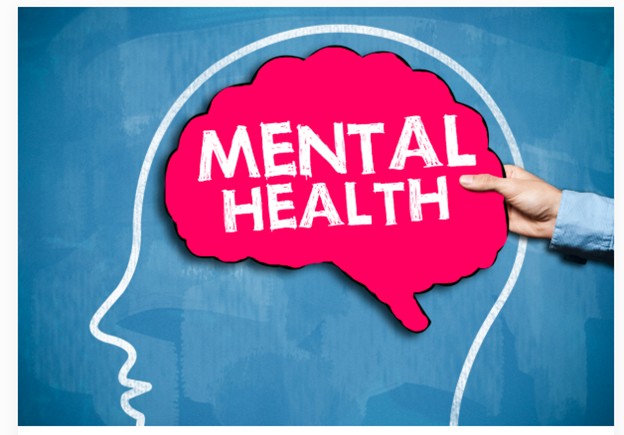The Concept of "Me and My Friends": A Strategy for Building Healthy Friendships for the Mental Health of Students of SD Inpres Oesapa
Konsep "Aku dan Temanku”: Strategi Membangun Persahabatan Sehat untuk Kesehatan Jiwa Siswa SD Inpres Oesapa
Keywords:
Mental health, Healthy friendship, Social skillsAbstract
Mental health in elementary school children is an important aspect of their psychosocial development. However, many elementary schools in Indonesia do not yet have a systematic program to foster healthy friendship building skills. Research shows that children who have close friends are less likely to experience social anxiety and show higher levels of psychological well-being. Community service entitled "Me and My Friends: Strategies for Building Healthy Friendships for Mental Health of Students of SD Inpres Oesapa" aims to educate grade VI students of SD Inpres Oesapa in building healthy friendships. The methods used in this program include identifying needs through initial screening using SDQ (Strengths and Difficulties Questionnaire), education and training in social skills through interactive games, group discussions, and social situation simulations, as well as post-activity evaluation and reflection. The results of the activity showed an increase in students' understanding of the values of healthy friendship, positive communication, listening skills, and empathy for peers. The participatory and fun approach proved effective in shaping students' awareness of the importance of healthy friendships. This activity also provided valuable experience for nursing students in applying psychiatric nursing theory in real contexts, in accordance with the principles of transformative education in the Nursing profession curriculum. By actively involving students in the learning process, this program succeeded in creating an inclusive school atmosphere and supporting students' mental health. It is hoped that this program can be a model that can be replicated in other schools to create a mentally and socially healthy young generation
References
Bayer, J. K., Mundy, L., Stokes, I., Hearps, S., Allen, N., & Patton, G. (2018). Bullying, mental health and friendship in Australian primary school children. Child and Adolescent Mental Health, 23(4), 334–340. https://doi.org/10.1111/CAMH.12261
da Silva, J. L., Komatsu, A. V., Zequinão, M. A., Pereira, B. O., Wang, G., & Silva, M. A. I. (2019). Bullying, social skills, peer acceptance, and friendship among students in school transition. Estudos de Psicologia (Campinas), 36, e180060. https://doi.org/10.1590/1982-0275201936E180060
DeRosier, M. E. (2004). Building Relationships and Combating Bullying: Effectiveness of a School-Based Social Skills Group Intervention. Journal of Clinical Child and Adolescent Psychology, 33(1), 196–201. https://doi.org/10.1207/S15374424JCCP3301_18;WGROUP:STRING:PUBLICATION
Hull, K. M., & Hull, K. M. (2025). Lasting Impact of Friendship : A Group Manual for Meaningful Connections in Adolescence.
Johnson, M. T., Troy, A. H., Tate, K. M., Allen, T. T., Tate, A. M., & Chapman, S. B. (2021). Improving Classroom Communication: The Effects of Virtual Social Training on Communication and Assertion Skills in Middle School Students. Frontiers in Education, 6, 678640. https://doi.org/10.3389/FEDUC.2021.678640/BIBTEX
Manchanda, T., Stein, A., & Fazel, M. (2023). Investigating the Role of Friendship Interventions on the Mental Health Outcomes of Adolescents: A Scoping Review of Range and a Systematic Review of Effectiveness. International Journal of Environmental Research and Public Health, 20(3). https://doi.org/10.3390/IJERPH20032160,
Masia-Warner, C., Klein, R. G., Dent, H. C., Fisher, P. H., Alvir, J., Albano, A. M., & Guardino, M. (2005). School-based intervention for adolescents with social anxiety disorder: Results of a controlled study. Journal of Abnormal Child Psychology, 33(6), 707–722. https://doi.org/10.1007/S10802-005-7649-Z,
McGoey, K. M., Aberson, A., Green, B., & Bandi Stewart, S. (2023). Building Foundations for Friendship: Preventing Bullying Behavior in Preschool. Perspectives on Early Childhood Psychology and Education, 7(1), 9. https://doi.org/10.58948/2834-8257.1038
Pollak, I., Mitic, M., Birchwood, J., Dörfler, S., Krammer, I., Rogers, J. C., Schek, E. J., Schrank, B., Stiehl, K. A. M., & Woodcock, K. A. (2023). A Systematic Review of Intervention Programs Promoting Peer Relationships Among Children and Adolescents: Methods and Targets Used in Effective Programs. Adolescent Research Review, 8(3), 297–321. https://doi.org/10.1007/s40894-022-00195-4
Rodriguez, L. M., Moreno, J. E., & Mesurado, B. (2021). Friendship Relationships in Children and Adolescents: Positive Development and Prevention of Mental Health Problems. Psychiatry and Neuroscience Update: From Epistemology to Clinical Psychiatry - Vol. IV, 433–443. https://doi.org/10.1007/978-3-030-61721-9_31
Rubin-Vaughan, A., Pepler, D., Brown, S., & Craig, W. (2011). Quest for the Golden Rule: An effective social skills promotion and bullying prevention program. Computers & Education, 56(1), 166–175. https://doi.org/10.1016/J.COMPEDU.2010.08.009
Silva, J. L. da, Oliveira, W. A. de, Carlos, D. M., Lizzi, E. A. da S., Rosário, R., & Silva, M. A. I. (2018). Intervention in social skills and bullying. Revista Brasileira de Enfermagem, 71(3), 1085–1091. https://doi.org/10.1590/0034-7167-2017-0151

Downloads
Published
How to Cite
Issue
Section
License
Copyright (c) 2025 Jurnal Abdimas Poltekkes Kupang

This work is licensed under a Creative Commons Attribution-NonCommercial-ShareAlike 4.0 International License.




